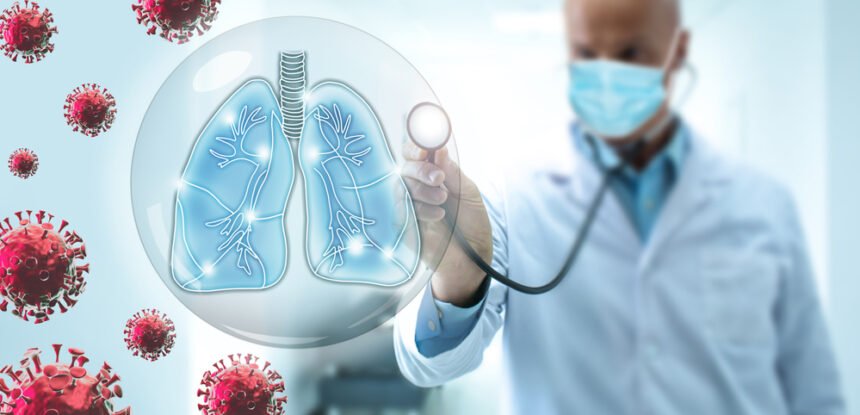Pneumonia can be a life threatening infection, that’s a relatively common disease among younger and older people. Not only that, but it’s also easily spread from person-to-person, which makes it even more dangerous.
Fortunately, there are ways you can protect yourself from acquiring pneumonia. One way to do so is to recognize the risks and be aware of its early stages. To help you, here are a few things you need to know about this infection.
What is Pneumonia?
Pneumonia is an infection caused by bacteria, viral, and fungi. The infection can lead to inflammation in the lungs, which can range from mild to extremely severe. It can be hard for the patient to breathe and can cause fever and cough with yellow, green, or even bloody mucus.
Young children or infants not older than two years old and people over 65 years old are at higher risk of acquiring pneumonia. It’s because their immune systems aren’t strong enough to counter this infection.
Moreover, patients can live without knowing that they have it, and this is usually called “walking pneumonia,” which can also be dangerous to others. This is because pneumonia from a virus or bacteria can spread to others, putting their lives at stake.
Symptoms
As mentioned, pneumonia can range from mild to extremely severe, and the symptoms can vary depending on the type of germ that caused the infection, the patient’s age, and overall health.
Newborns and infants are other cases and may not show any signs of pneumonia, but some babies may vomit, appear without energy, have a fever, cough, and have difficulty breathing.
Signs and symptoms of pneumonia in adults may include:
- Cough that may produce phlegm (yellow, green, or bloody mucus)
- High fever
- Tiredness (fatigue)
- Shortness of breath with rapid heart rate
- Chills or sweating
- Nausea, diarrhea, or vomiting
Causes of Pneumonia
Pneumonia can be caused by several varieties of bacteria, fungi, and viruses in people’s air. This essentially means that it spreads from person to person through inhalation from a sneeze or a cough.
Also, you can acquire this infection by coming into contact with objects or surfaces that are contaminated with bacteria or viruses that can cause pneumonia. However, fungal pneumonia comes from the environment and doesn’t spread from person to person, but it is still as dangerous.
Treatment and Care
Fortunately, with proper recognition and treatment, there are ways you can treat pneumonia entirely without further complications. Like the severity, the treatment and care also depend on your type of pneumonia, age, and overall health conditions. This said the possible medications and treatment plan is unique for you.
If bacteria cause pneumonia, you’ll likely be prescribed an antibiotic, like Cefdinir, which can be relatively expensive in some pharmacies. Before you head on and try to find alternative antibiotics, you must first consult your doctor.
On the other hand, you can try a Cefdinir coupon to help you purchase the prescription at a discounted price. Still, if you want to try your shot with alternatives, you can compare generic and brand name prescriptions and always wait for clearance from your doctor. You can also check out Pharmacy Insights & News to stay updated with the current state of American healthcare.
On the other hand, antibiotics aren’t effective for viral pneumonia. Doctors will keep a close eye on you, and you’ll be required to rest, take medicine for the fever, and drink lots of fluids to stay hydrated. However, if the condition becomes worse, the patient can experience complications. Then, they’ll be required admittance to the hospital.
Prevention
The best way to prevent pneumonia is to get up-to-date vaccination against bacteria and viruses that commonly cause this infection.
Two types of vaccines can help prevent pneumonia caused by pneumococcal bacteria. However, it doesn’t entirely protect you from all types of pneumonia, but it helps you from feeling severely sick. Before you take any shots, ensure that you have consulted your healthcare provider first.
You can get a pneumococcal vaccine that helps protect against pneumonia bacteria. It’s usually for specific age groups. A doctor’s consultation is necessary to ensure you get the appropriate pneumococcal vaccine type. Also, vaccinations against viruses like COVID-19 and the flu can lower your risk of infection. For younger children, their doctors can prescribe vaccinations that are appropriate for them.
Other ways you can reduce your risk of getting infected with pneumonia is to change a few habits in your life and improve your hygiene. If you’re a smoker, quitting smoking is best to protect yourself and your loved ones. People around you can acquire secondhand smoke, and smoking can damage your lungs, making them vulnerable to other infections.
You should also practice washing your hands with soap and water before eating and after using the bathroom. If soap becomes unavailable, you can always use an alcohol or alcohol-based hand sanitizer. That brings you to keep one to yourself every day, wherever you go.
Aside from this, ensure a healthy diet, exercise, and enough rest. Even if you don’t work out daily, ensure you live a healthy lifestyle.
Final Thoughts
Pneumonia can be deadly if it gets caught in its late stages. Fortunately, there’s something you can do to prevent yourself and your loved ones from acquiring it. Going to the doctor for checkups can help prevent this fatal sickness, and having proper medication is one of the actions that you can do to address this illness. Additionally, make sure that you opt for a healthy lifestyle whether it may be for prevention or cure, since there’s no better way to treat one’s self through having a good and balanced diet.
Knowledge is power, and knowing what you can do to counter and prevent pneumonia will help save lives. You can keep this article as a reference or continue reading it to become more familiar with this infection.

